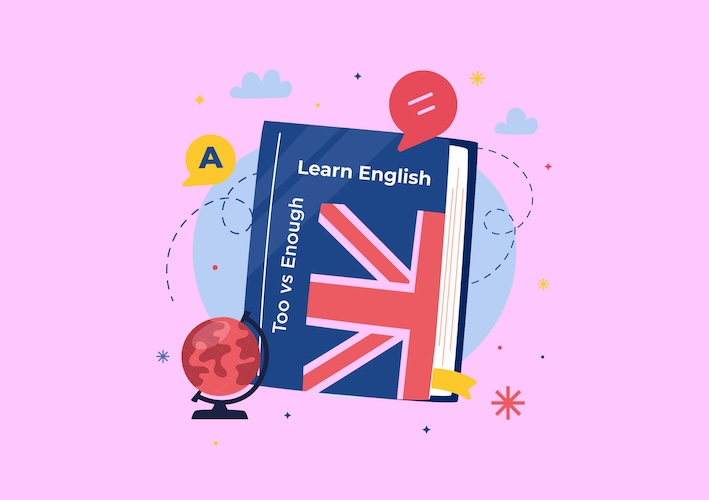
Parts of sentence
Understand how sentences work, and how they are built with this explanation!
Table of Contents
1.Subject
1.1Basic Information about the Subject
A subject is one of the most important parts of a sentence because it tells us who or what the sentence is about.
The subject of a sentence is the person, place, thing, or idea that is doing the action or we describe.
| Example | Comment |
|---|---|
| Anna is reading a book. | Who is reading? Anna — subject as a person. |
| The library is quiet. | What is quiet? The library — subject as a place. |
| My laptop is very expensive. | What is expensive? My laptop - subject as a thing. |
| Honesty is important. | What is important? Honesty — subject as an idea. |
So how to Find the Subject? - Just ask “Who?” or “What?” before the verb!
| Example | Comment |
|---|---|
| Dogs are amazing. | Who is amazing? Dogs |
| John and Anna are at home. | Who is at home? John and Anna |
| My friends and I like jogging in the morning. | Who likes jogging in the morning? My friends and I |
| They read books at home. | Who reads books at home? They |
| It is cold. | sometimes we do not translate the subject but it MUST be in the sentence. |
| This is a good picture. | What is a good picture? This |
| The children like games and ice-cream. | Who likes games and ice-cream? The children |
| The table costs much. | What costs much? The table |
 Practice Examples
Practice Examples
I speak French and English well. _____ .
My dog loves playing in the park. _____ .
She reads books every evening. _____ .
2.Predicate
2.1Main verb
The main verb is the most important verb in a sentence. It shows the action or the state of the subject.
The main verb tells us what the subject is doing or what is happening. The main verb changes if the tense changes.
In a sentence, the main verb can stand alone, or it can work with helping verbs.
Main verbs are used to represent an action that the subject is doing, they often change if the tense changes
| Example | Explanation |
|---|---|
| Tom is speaking to Stephany. | "speaking" - the action |
| Tom often speaks to Stephany. | "speaks" - the action |
| Tom is not speaking to Stephany. | "speaking" - the action |
| Tom does not often speak to Stephany. | "speak" - the action |
| Do you often play videogames? | "play" - the action |
| She believes in herself. | "believes" - her mental state |
| She is happy. | "is" - her state |
 Practice Examples
Practice Examples
I speak French and English well. _____ .
The cats are sleeping on the soft bed. _____ .
She plays tennis every weekend. _____ .
2.2Helping verbs
A sentence can have a main verb alone, but when you see more than one verb together, the first one is often a helping verb. A helping verb (also called an auxiliary verb) helps the main verb form the verb’s tense correctly according to the English grammar. Normally we don't translate helping verbs but without them we can't form tenses correctly.
| Tense | Example | Comment |
|---|---|---|
| Present Simple + | I speak English well. | "speak" - main |
| Present Simple - | I do not speak Enlish well. | "speak" - main do - helping |
| Present Simple ? | Do you speak English well? | "speak" - main do - helping |
| Present Progressive + (Continuous) |
I am reading a book now. | "reading" - main am - helping |
| Present Progressive - (Continuous) |
I am not reading a book now. | "reading" - main am - helping |
| Present Progressive ? (Continuous) |
Are you reading a book now? | "reading" - main are - helping |
 Practice Examples
Practice Examples
The dog is playing. _____ .
My sister does not want to go home. _____ .
They are studying English. _____ .
2.3Object
An object can be direct and indirect. When there is an object in the sentence, we need to put it after the verb. Verb and object are together.
| Direct | Indirect |
|---|---|
| A direct object is the person or thing that receives the action of the verb directly. | An indirect object is the person or thing that receives the direct object. |
| He gives Sarah a book. What does he give? a book. |
He gives Sarah a book. Who does he give the book to? Sarah. Sarah receives the book. |
| Example | Comment |
|---|---|
| She opens the door. | What? the door → direct |
| Can I introduce my friend to you? | Who? my friend → direct To whom? to you → indirect |
| You can ask John a question. | What? a question → direct Whom? John → indirect |
| Give it to me. | What? it → direct To whom? to me - indirect |
| Speak to him. | To whom? to him → indirect |
| She gives her sister a gift. | Whom? her sister → indirect What? a gift → direct |
 Practice Examples
Practice Examples
I want to give Tom a present. _____ , _____ .
She often talks to her mother. _____ .
They want to send John an email. _____ , _____ .
Ready to Practice This Topic?
Join thousands of learners who are improving their English grammar skills every day with GrammarTrack.

